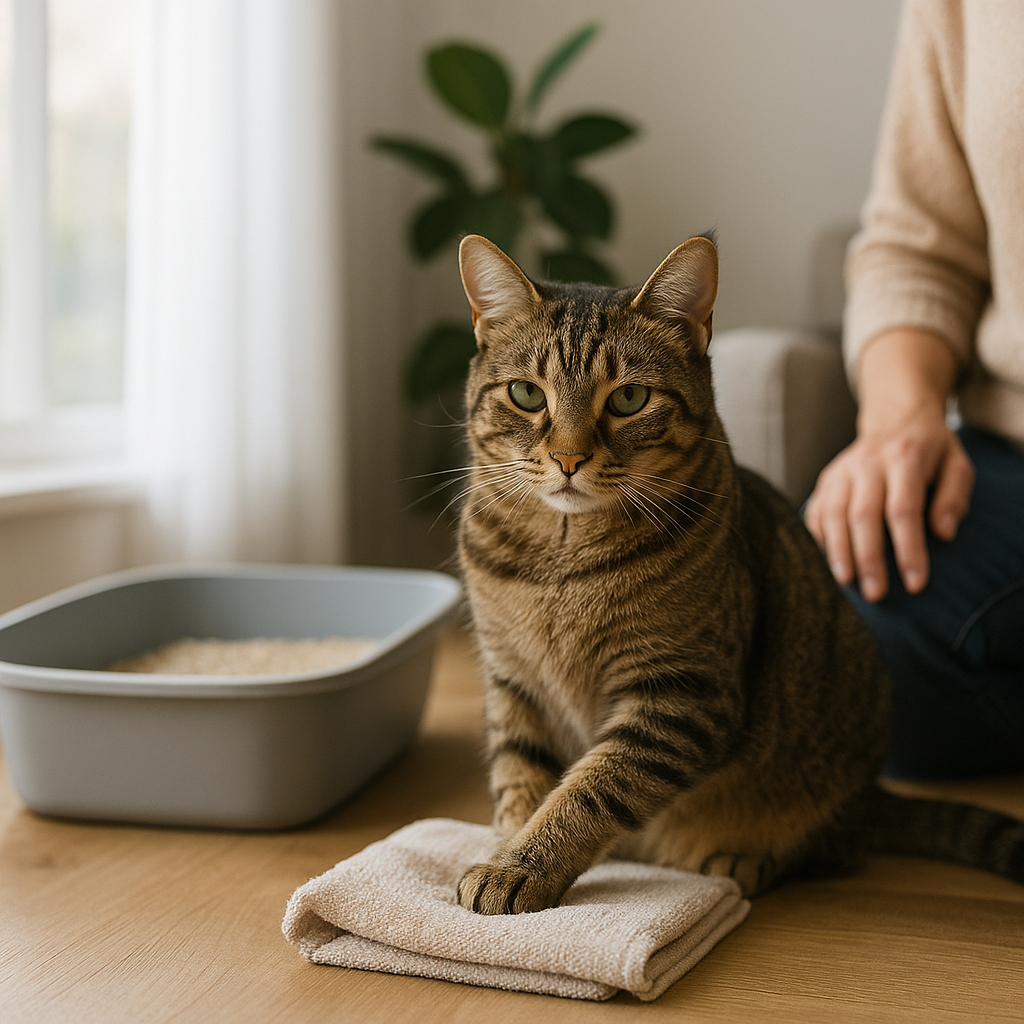Acute diarrhea in cats: causes, what to do and when to go to the veterinarian
Discover everything about acute diarrhea in cats: symptoms, causes, and when it is necessary to contact the veterinarian.

Acute Diarrhea in Cats: Causes, What to Do, and When to See the Veterinarian
Acute diarrhea in cats is a common problem that can worry owners. Understanding the causes and knowing how to react is essential to ensure our feline's health. In this article, we will explore the symptoms, possible causes, steps to take at home, and when it's time to consult a veterinarian.
TL;DR
- Acute diarrhea can be caused by a variety of factors, including infections, dietary changes, and parasites.
- It is important to monitor the symptoms and the overall health of the cat.
- If diarrhea persists for more than 24 hours, it is advisable to contact a veterinarian.
Index
Symptoms
The symptoms of acute diarrhea in cats can vary, but often include:
- Liquid or soft stools
- Vomiting
- Loss of appetite
- Dehydration
- Lethargy
- Swollen abdomen
Possible Causes
The causes of acute diarrhea in cats can be multiple:
- Viral or bacterial infections: Infections such as feline panleukopenia or salmonella can cause diarrhea.
- Dietary changes: A sudden switch to new food can irritate the cat's intestines.
- Intestinal parasites: Worms and protozoa can compromise digestive health.
- Stress: Stressful situations can affect the cat's gastrointestinal system.
What to Do at Home
If your cat has acute diarrhea, here are some concrete steps to follow:
- Monitor behavior: Observe your cat for any changes in behavior and appetite.
- Keep it hydrated: Ensure that the cat always has access to fresh water to prevent dehydration.
- Modify the diet: Consider feeding a easily digestible food for a couple of days.
- Probiotics: You can give specific probiotics for cats, but consult the veterinarian before doing so.
When to Call the Veterinarian
It is important to know when it is time to contact a veterinarian:
- If diarrhea persists for more than 24 hours.
- If you notice signs of dehydration, such as dry gums or skin that lacks elasticity.
- If the cat appears particularly lethargic or shows signs of pain.
- If there are bloody stools or black stools.
- If the cat has persistent vomiting in addition to diarrhea.
Prevention
To prevent episodes of diarrhea, consider the following practices:
- Maintain a balanced diet suitable for your cat.
- Schedule regular veterinary check-ups to monitor your feline's health.
- Ensure that your cat is protected from parasites with appropriate treatments.
FAQ
- 1. What can I give my cat for diarrhea? Consult the veterinarian before administering any medication or supplement.
- 2. Can acute diarrhea be dangerous? Yes, it can lead to dehydration and other complications if untreated.
- 3. Do antibiotics help with diarrhea? Not always; the veterinarian will decide if they are necessary.
- 4. Can I give my cat rice or chicken? Yes, they can be easily digestible foods, but make sure they are prepared without spices.
- 5. How long will it take for my cat to recover? It depends on the cause; consult the veterinarian for an accurate estimate.
For more information on your cat's health, visit our dedicated section on health, nutrition, and behavior.